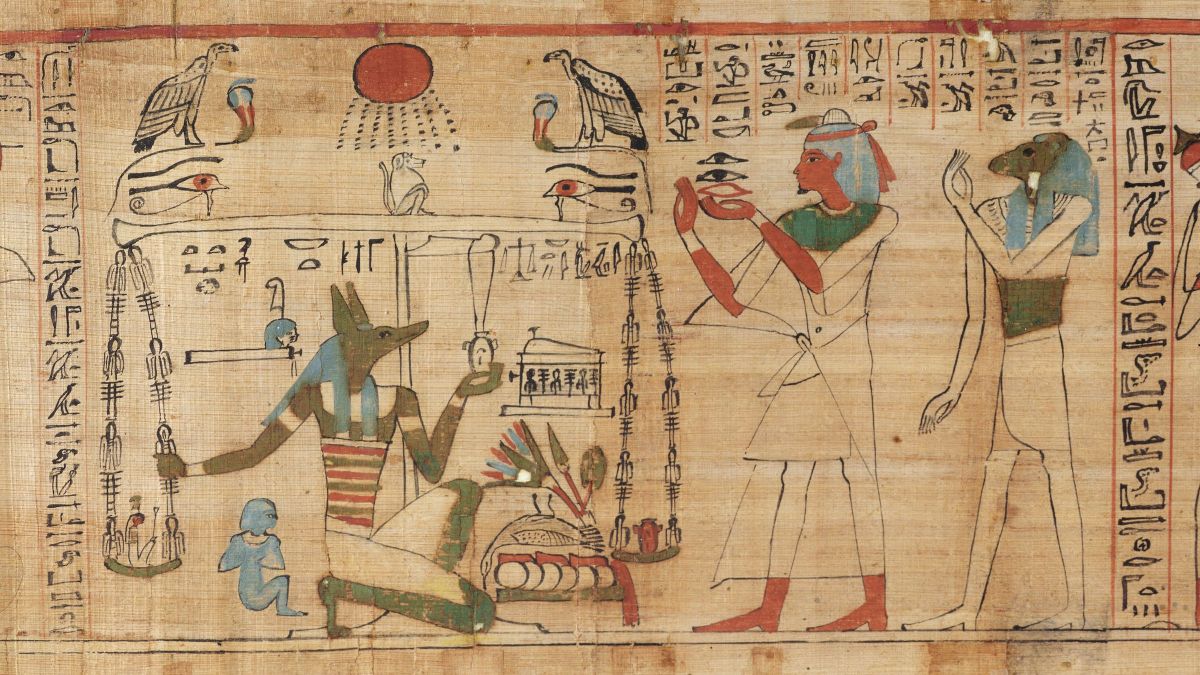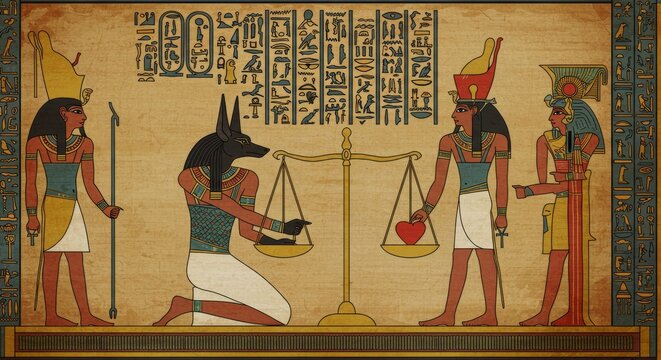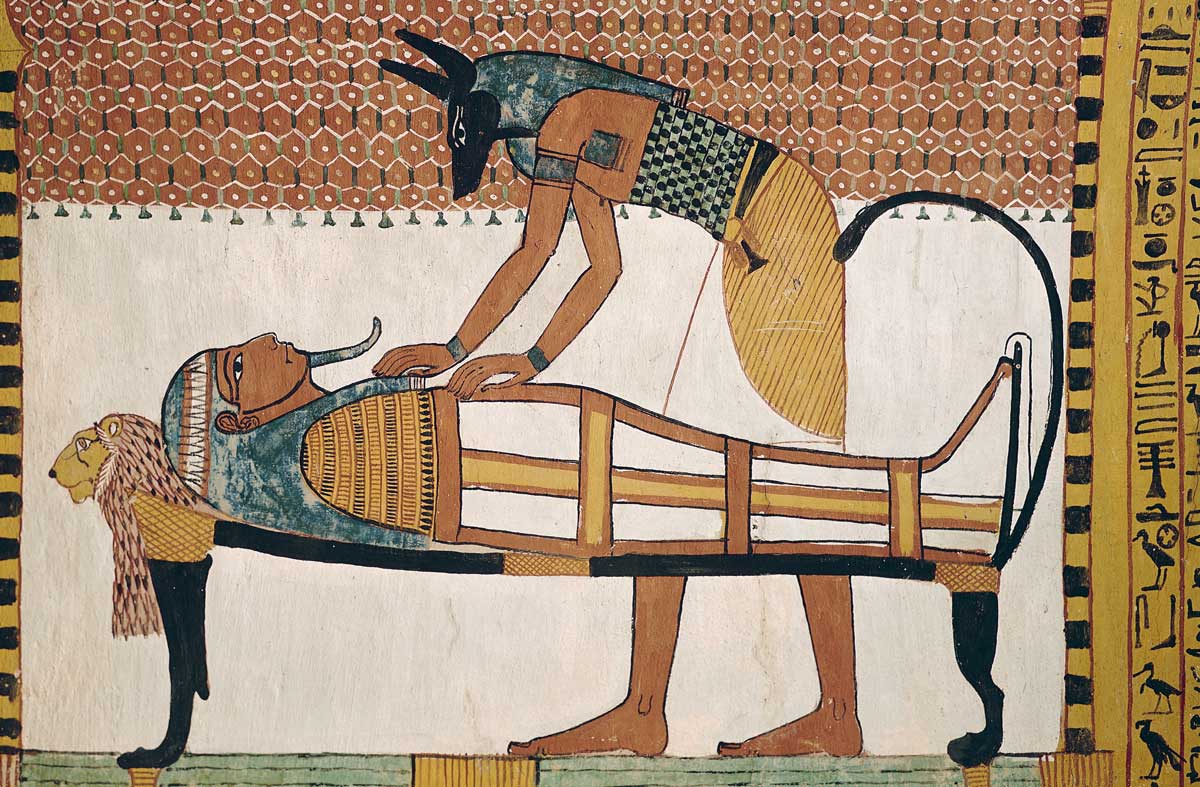The ancient Egyptian afterlife concept was an essential part of their culture. To Egyptians, death was merely a transition to another realm for the soul. The afterlife was viewed as an ideal existence, with no suffering and full of joy, just like the earth's life. Egyptians by their hard work in their life, virtuous conduct and observing the religious practices prepared for this journey, including practices such as mummification and afterlife preparation. They constructed temples, tombs, and even wrote inscriptions in pyramids to help souls find their way to the afterlife. The importance of afterlife preparation was so great that it affected people's lives during their lifetime, in the way they lived and the things they placed in the graves with them.

The Book of the Dead was a key guide for Egyptians, and played an essential role in going through the Ancient Egyptian afterlife. It was a collection of spells, prayers, and instructions meant to support the Akh (Ancient Egyptian soul)’s journey through the evils and to the stain of eternal life. The Egyptians also mummified the dead and went through the afterlife preparations so that the body would be picked. They thought that the soul was dependent on a corporeal body in the next world. The mummification process was very meticulous: organs were taken out, the body was dried and wrapped up with linen. Tombs were stocked with food, jewelry, and other treasures that the dead might need. The Weighing of the Heart ceremony, along with the Book of the Dead and mummification, in unison, provided the soul with a safe passage and protection in the afterlife.

In ancient Egypt, The path to the afterlife was full of challenges, including a judgment of the soul’s deeds.This practice was commonly referred to as the Weighing of the Heart. The heart of the dead was balanced with the feather of Ma'at, the goddess of truth and justice. The soul could enter the Field of Reeds, a paradise of eternal happiness, if the heart was light and pure. In contrast, if the heart was heavy with sins, the soul would suffer punishment. The Egyptians imagined the Akh, or transformed spirit, which became immortal only if the soul passed judgment. The Egyptians were convinced that the judgment after death, supported by the divine system, would be the same as on earth, so they chose to live morally and harmoniously.
The concepts of the afterlife as presented by Ancient Egyptians, their reliance on the Book of the Dead, the careful mummification and other burial customs, and the weighing of the heart in the moral trial are distinct signs that they revered the afterlife to the highest degree.Ideas such as the Field of Reeds and the Akh illustrate their aspirations for everlasting joy and spiritual metamorphosis. Through the knowledge of these customs, one can realize that the Egyptians not only linked their life with the next one but also contributed to the making of a rich, enduring culture, religion and art that still draws the interest of people today.
Find out our latest news, promotions, and professional tips. Know before you book your next Egypt tours
Egypt has many historical sites that you can visit and enjoy. Each tour is different and unique. If you go on a Nile cruise, you can visit Abu Simbel, Aswan, and Luxor in the South and enjoy the temples, tombs, and the treasures of the Nile. In the North, enjoy the Pyramids of Giza, The Egyptian Museum, Sakkara. Mosques, churches in Cairo, and many landmarks located in the city of Alexandria. On the East, Enjoy a beach tour for diving, snorkeling, and swimming in the Red sea. Every city has its charm, history, and flavor where you can do many tours and activities.
Your Egypt Tours is one of Egypt’s leading and most trusted travel agencies, known for its personalized service and expert care. As a top-rated company for Egypt tour packages, we ensure every Egypt trip is safe, seamless, and unforgettable, offering competitive prices, excellent customer service, and the highest standards of quality. With us, you’re always in good hands.
The average cost of a one-week trip in Egypt is around 1600 USD, including visits to tombs, temples, and a Nile cruise. Prices vary depending on the Egypt tours and the level of luxury you choose.
It’s not recommended to drink tap water in Egypt, as it’s highly chlorinated and may cause stomach issues for travelers. During your Egypt tours, it’s best to drink bottled water and use tap water only for washing or brushing your teeth.
The best time to enjoy Egypt tours is from September to March, when the weather is mild and pleasant. During these months, temperatures are ideal for sightseeing and Nile cruises. Summer (May to September) can be very hot, but it’s also a good time for budget travelers.
Egypt is generally hot and sunny most of the year, with winter falling between November and January, and summer peaking from June to August. Winters are mild, while summers can get very hot, especially in Luxor and Aswan. The pleasant weather from September to March makes it the best time to enjoy Egypt tours and explore the country's top attractions comfortably.
Yes, Egypt is a very safe country to visit, with a low crime rate and strong security measures in all tourist areas. The government ensures that accommodations and attractions remain clean and well-monitored for travelers’ comfort. When you book Egypt tours, you’ll find professional guides and organized arrangements that make your trip worry-free and enjoyable.
Egypt offers adventures for every traveler. Explore the majestic Pyramids of Giza, sail along the Nile on a Luxury cruise between Luxor and Aswan, and discover ancient temples and tombs that tell the story of the Pharaohs. Dive or snorkel in the Red Sea at Hurghada and Sharm El Sheikh, or enjoy a relaxing beach escape. Book one of our Egypt tours to experience the perfect mix of history, culture in one unforgettable journey.
Yes, you can, summer is still a great time to explore Egypt! While temperatures can rise to around 45°C, seaside resorts like Hurghada, Sharm El Sheikh, and Marsa Alam offer refreshing escapes with diving and snorkeling opportunities. Sightseeing in the early morning or evening helps you avoid the midday heat. Summer also brings great deals on hotels and services, making it ideal for travelers on a budget. Whether you’re seeking relaxation or adventure, Egypt tours during summer can still be an enjoyable and memorable experience.
Egypt has a modest dress code, especially for women, since it’s a Muslim country. Light, comfortable clothing is fine, but avoid short shorts or skirts. When visiting religious sites, cover your shoulders and knees. During Egypt tours, you can dress casually and comfortably; formal wear is optional unless you want to make your Nile cruise dinner extra special.
You can easily obtain a visa upon arrival at Cairo Airport, the process is simple for USA, UK, Canadian, Australian, and European citizens. The visa costs $25 USD and can be purchased at the visa office before immigration. You can also apply for an E-Visa through the official portal: www.visa2egypt.gov.eg. During your Egypt tours, our team can assist you with all visa-related inquiries to make your arrival smooth and stress-free.
Your Egypt Tours travel agency recommends two weeks so that you can enjoy the temples and tombs of Luxor and Aswan, explore the sights of Cairo, and relax in the Red Sea islands and nature reserves.
The best Egypt Nile River cruise depends on your preferences, budget, and how many nights you wish to spend on board. For a truly unforgettable experience, we recommend a 5-star luxury Nile cruise that offers exceptional comfort and service. If you prefer a more private and intimate journey, choose a Dahabiya Nile cruise, ideal for small groups of around 15 people. For adventurous travelers, the traditional Felucca boats provide a simple and authentic way to sail the Nile during your Egypt tours, though they offer fewer amenities.
The best time to visit Egypt is generally from October to April where it is suitable for outdoor activities and sightseeing.
Egypt travel usually have guided tours to archaeological sites, museums, and historical landmarks. Also have optional activities may include hot air balloon rides over Luxor, snorkeling in the Red Sea, or desert safaris.
